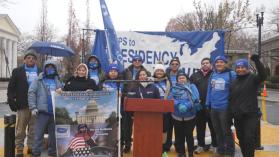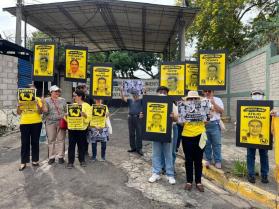Massive Pride March Confronts Government Crackdown on Dissent
Despite heavy rains, tens of thousands of Salvadorans took to the streets on Saturday, June 29 for the country’s Pride March in a powerful display of resistance to Nayib Bukele’s attacks against the LGBTI+ community and the country’s democratic institutions.
This year’s Pride March was the first mass anti-government demonstration since Bukele’s unconstitutional second term began on June 1, and came on the heels of a purge in the Ministry of Culture in which, according to a tweet published by Bukele himself, hundreds of workers who “promote agendas that are incompatible with this government’s vision” were fired. Bukele heralded this “vision,” that of rejecting equal rights and access to government institutions for LGBTI+ people, in his February attendance at the Conservative Political Action Committee (CPAC) Conference, where he pandered to the international far-right by stating his opposition to “gender ideology” in the Salvadoran government.
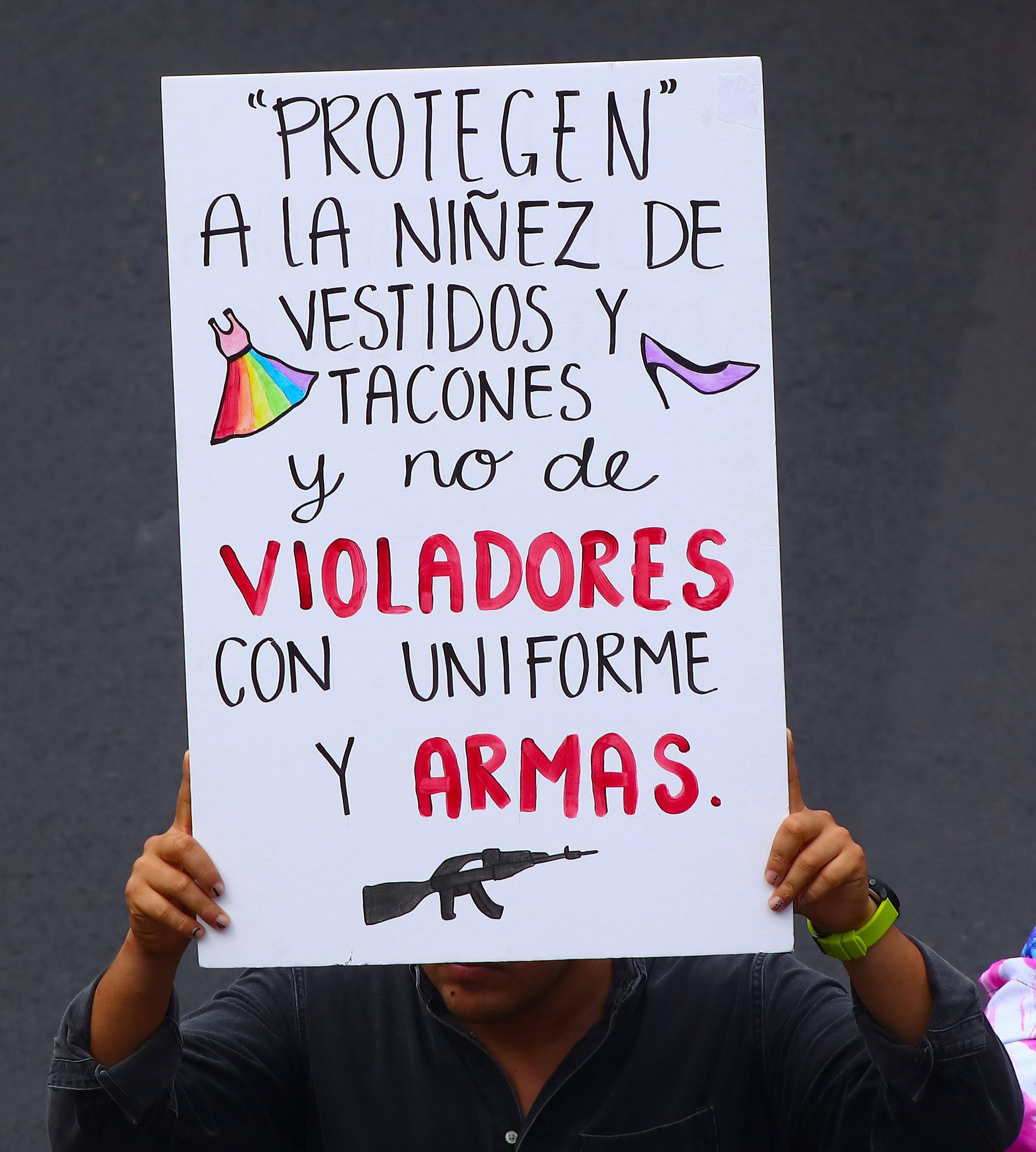
"They 'protect' children from dresses and high heels, but not from rapists with uniforms and guns" Photo: CISPES
Setting the tone for the colorful march, representatives from different organizations that make up the Broad LGBT Movement of El Salvador (MALES, for its initials in Spanish) denounced the Bukele government in a pre-march press conference. “We recognize the setbacks that have marked the last five years of government: the dissolution of the Sexual Diversity Directorate, the repeal of Executive Order 56 [prohibiting discrimination on the basis of gender identity or sexual orientation in the public sector], our exclusion from public health care and education, and the unjustified shelving of legislative bills such as the Gender Identity Law and the Equality and Non-Discrimination Law,” began Gonzalo Montano of prominent LGBTI+ organization, AMATE.
Addressing Bukele’s fundamental threat to democracy, Montano continued, “These events, together with an illegitimate presidential reelection, represent not only mismanagement, but also the end of 32 years of a democracy that, although weak, homophobic, transphobic, and queerphobic, did not push its detractors into exile and did not limit the rights of the entire country’s population, as it does today.”
The march, which snaked through San Salvador, ending at the Salvador del Mundo Plaza, was peppered with signs and punctuated by chants, often directed at Bukele and the country’s conservative churches, demanding respect for LGBTI+ people.
The Archbishop of San Salvador, José Luis Escobar Alas, recently came under fire for participating in Bukele’s June 1 inauguration, offering a prayer for the authoritarian ruler during the ceremony. Multiple legislative deputies belonging to Bukele’s Nuevas Ideas (New Ideas) party are also evangelical preachers, despite a constitutional ban on religious officials holding elected office.
Recent Attacks on Critics and Activists
Recent arrests of social movement leaders and the anti-LGBTI ideological purge in the Ministry of Culture just two days prior, increased tensions going into the march. Days before Bukele’s June 1 inauguration, ten social movement leaders of the National Alliance for a Peaceful El Salvador (Alianza Nacional El Salvador en Paz) were arrested without warrants and currently remain in prison. Many suffer from chronic health conditions, which supporters say could easily lead to their deaths under El Salvador’s inhumane prison conditions. One of the detainees, Jose Santos Melara, known as a former legislative deputy with the leftist Farabundo Marti National Liberation Front (FMLN) and current coordinator of the Alliance, is facing inadequate treatment due to complications from various medical conditions, which include diabetes, hypertension, diabetic ulcers, and irritable bowel syndrome.
Even prior to the layoffs, the Ministry of Culture had already ramped up censorship on the LGBTI+ community. In mid-June, the Ministry canceled the second of two performances by queer art collective Inari Project, which was scheduled to take place at the National Theater. The performance, which has been performed at the National Theater regularly since 2016, highlights the daily discrimination and violence faced by the LGBTI+ community. In a statement following the cancellation, the Ministry of Culture claimed the play was “not appropriate for Salvadoran families.”
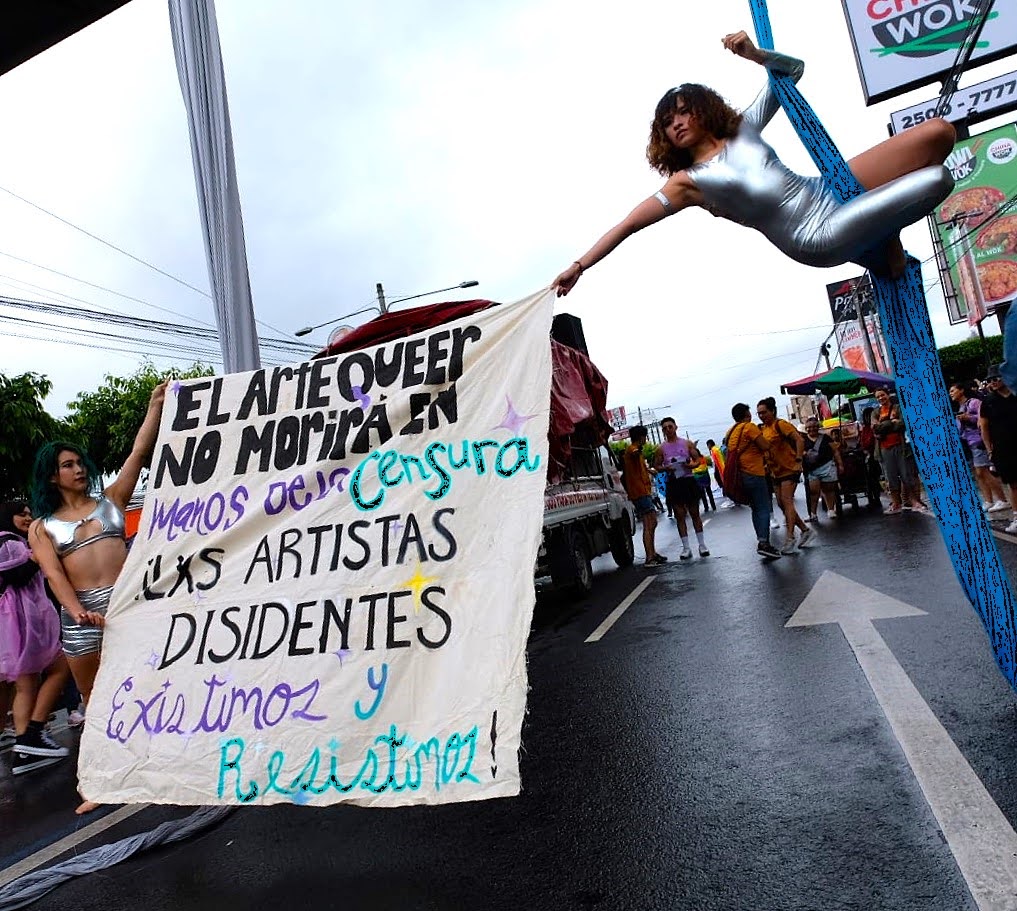
"Queer art will not die at the hands of censorship. Dissident artists exist and resist!" Photo: CISPES
Shortly after the performance was canceled, Bukele appointed a Nuevas Ideas legislative deputy, Raul Castillo, as the new Minister of Culture, despite lacking training in any related field. Then, two days before the Pride March, Bukele announced via X that Castillo was conducting a mass firing of 300 workers within the Ministry. His tweet attributed the firings to “incompatible agendas” promoted by those workers.
Critics have interpreted the fact that the firings closely followed the censoring of the Inari Project play as an anti-LGBTI+ smokescreen, used to impose austerity measures on the Ministry. Among those fired were museum staff, paleontologists, and Cultural Center employees across the country. The fired Ministry of Culture workers are only a fraction of the more-than 21,000 public workers whose jobs have been eliminated under Bukele’s rule, including the eleven member board of directors of the Ministry of Culture Union and its secretary-general in September 2023. The union’s headquarters was also raided by police.
Following his unconstitutional reelection In February, Bukele highlighted his anti-LGBTI+ campaign on the international stage, while attending the far-right CPAC Conference, announcing that his government had banned “gender ideology” in government institutions. Immediate action soon followed at the Health and Education Ministries. Medical intake forms and educational materials were quickly updated to remove questions and information about sexual orientation and trans and non-binary gender identity. The move drew swift condemnation from LGBTI+ groups and is having significant consequences, according to Colectivo Alejandría director Karla Guevara. “The care guidelines for the LGBTIQ+ population disappeared from the National HIV Program within the Ministry of Health in February. This has been quite serious, because one of its short-term impacts has been precisely that the population is no longer visiting health centers.”
Despite the recent attacks, the massive turnout, making it one of the biggest marches of the year, showcased the determination of a community united to defend their rights as well as what remains of El Salvador’s fragile democracy.
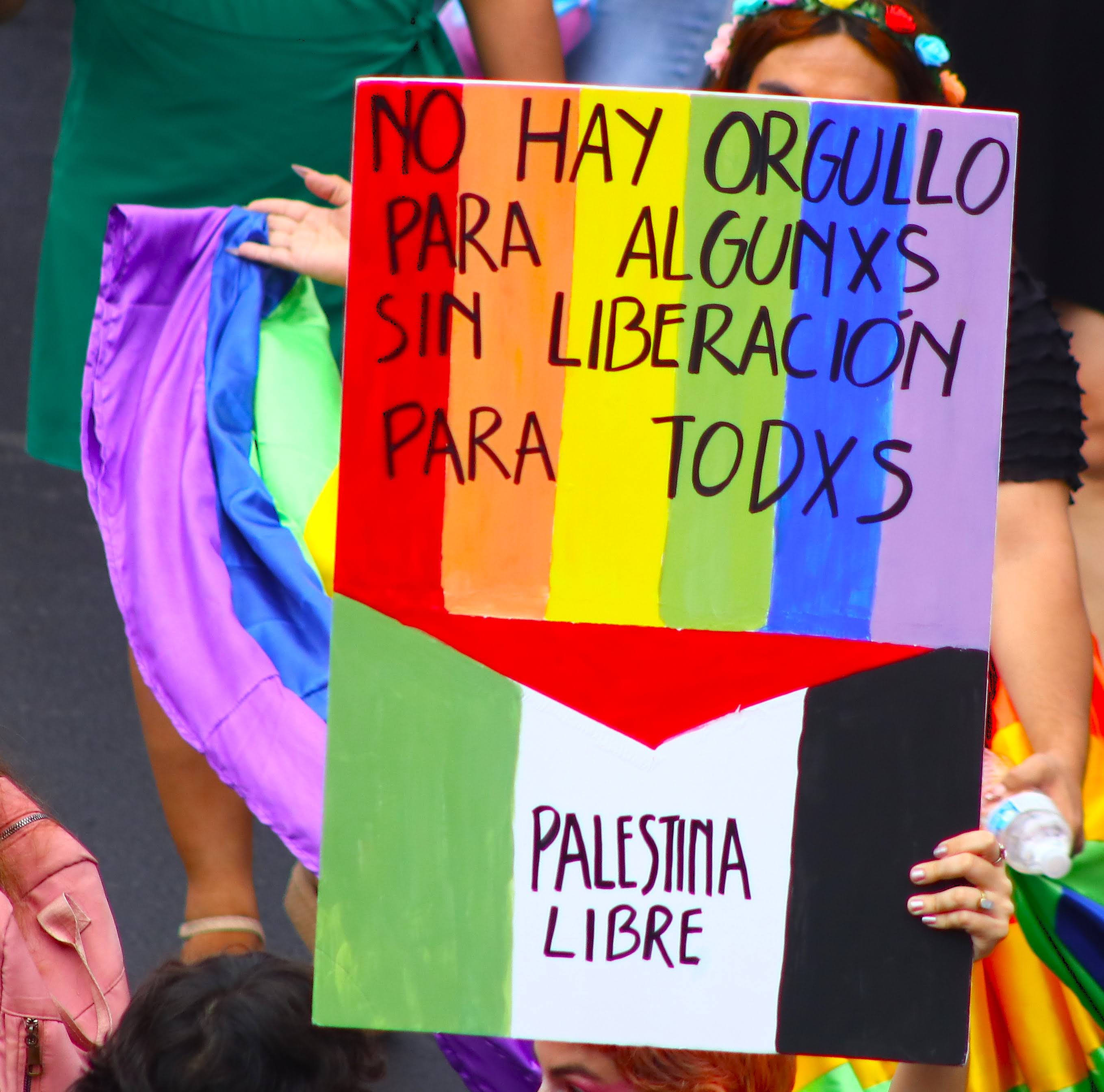 "There can't be pride for some without liberation for all. Free Palestine" Photo: CISPES
"There can't be pride for some without liberation for all. Free Palestine" Photo: CISPES

 "I am a CISPES supporter because continuing to fight for social justice and a more people-centered country means continuing the dream and sacrifice of thousands of my fellow Salvadorans who died for that vision.” - Padre Carlos, New York City
"I am a CISPES supporter because continuing to fight for social justice and a more people-centered country means continuing the dream and sacrifice of thousands of my fellow Salvadorans who died for that vision.” - Padre Carlos, New York City
